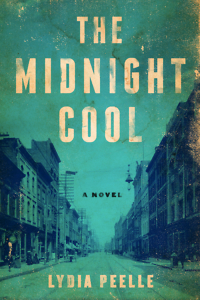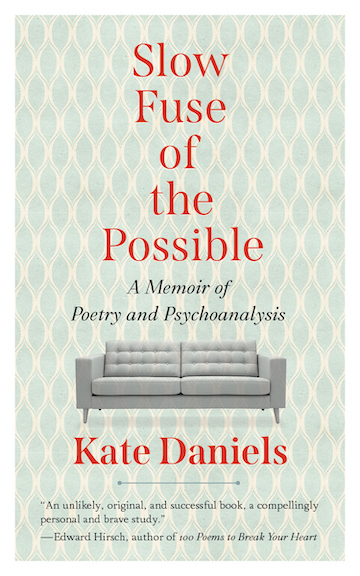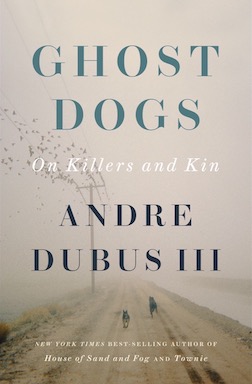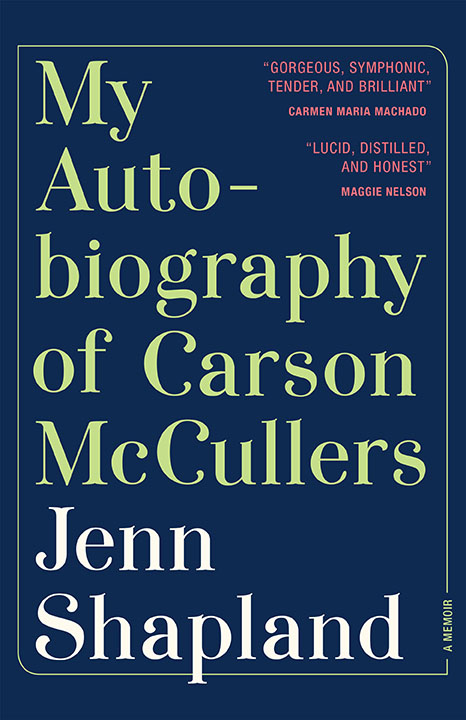Love and Money in Wartime
Lydia Peelle’s debut novel, The Midnight Cool, is a tale of two Tennessee horse traders during World War I
Lydia Peelle’s debut novel, The Midnight Cool, opens in August 1916 as a couple of wandering horse traders, Charles McLaughlin and Billy Monday, arrive in a little town outside Nashville and buy a particularly splendid black mare. The horse, a creature of almost uncanny beauty, turns out to be less perfect than she seems, and her purchase ultimately reshapes the lives of the two men just as U.S. involvement in World War I throws the whole country into turmoil.

Charles and Billy are more than business partners. They’re the closest of friends, as tight as family. In fact, for all practical purposes, they are family, having no one in the world but each other. Charles, just eighteen, never knew his father and is haunted by the memory of his dead mother. Billy is an Irish immigrant who’s old enough to be Charlie’s father and seems satisfied to fill that role, gently mentoring the brash, ambitious younger man. Together they make a shrewd but likable pair, fundamentally decent but not above taking advantage of a gullible customer.
After the owner of the black mare, a rich man named Leland Hatcher, gets the best of them, taking all their money for the unsellable horse, they’re left scrambling to survive. The hustle ultimately takes them into mule trading, a business that’s thriving thanks to British demand for the animals in its war effort and that further accelerates when the US finally enters the conflict. Meanwhile, Charles’s avid pursuit of profits is complicated by his growing attachment to Hatcher’s daughter, Catherine, who slowly reveals a nest of horrendous secrets about her family and baffles the more innocent Charles with her ambivalence about love.
Peelle’s tale grapples with some of the enduring themes of American literature: the lure of wilderness versus the urge to civilize, conformity in conflict with personal freedom, the soulless pursuit of money, and the inescapable specter of racism. There are moments in The Midnight Cool that recall canonical authors from Thoreau to Wharton, from Fitzgerald to Faulkner. That’s not to say the book seems derivative; it’s a vigorous and original story, and Peelle does an impressive job of creating a coherent and emotionally real fictional world.
 In its cultural particulars, that world—i.e., a small Southern town during the depths of the Jim Crow era—is not at all pretty. White society is powerfully stratified according to both money and class, and blacks live on the brutalized side of a color line that is never breached without terrible consequence. The injustice, when it’s acknowledged at all, is accepted as the price of progress, of success in a still-young country. “It’s awful ugly, what they did to those people,” says Charles, referring to slavery. The response, from a legendary mule trader who sees himself as the heir to George Washington, allows no room for such regrets: “You can’t build a country this great this fast without a whole lot of ugliness and that’s just a fact.” Yet this same man rails against his neighbors who are determined to kill a marauding wolf. His embrace of the ruthless capitalist ethos is at odds with his belief that “a man cannot be a man without the wilderness at his back.”
In its cultural particulars, that world—i.e., a small Southern town during the depths of the Jim Crow era—is not at all pretty. White society is powerfully stratified according to both money and class, and blacks live on the brutalized side of a color line that is never breached without terrible consequence. The injustice, when it’s acknowledged at all, is accepted as the price of progress, of success in a still-young country. “It’s awful ugly, what they did to those people,” says Charles, referring to slavery. The response, from a legendary mule trader who sees himself as the heir to George Washington, allows no room for such regrets: “You can’t build a country this great this fast without a whole lot of ugliness and that’s just a fact.” Yet this same man rails against his neighbors who are determined to kill a marauding wolf. His embrace of the ruthless capitalist ethos is at odds with his belief that “a man cannot be a man without the wilderness at his back.”
The everyday brutality between human beings is more than matched by routine human brutality toward animals. Peelle doesn’t hold back in showing the coarsened behavior that comes from treating intelligent creatures as commodities, although The Midnight Cool is also filled with instances of respect and affection between man and beast. Of course, those moments serve to make the cruelty all the more poignant, and when the war arrives, humans are as helpless before its violence as the animals are.
Peelle is telling a story that is necessarily soaked in pain, and it would be unbearable without the loving relationships, especially the one between Charles and Billy, at its core. Love is not so much redemptive as it is a necessary counterweight, without which no survival is possible. As long as there is love, Peelle seems to say, there will be life.
[To read an excerpt from The Midnight Cool, click here.]

Maria Browning is a fifth-generation Tennessean who grew up in Erin and Nashville. A graduate of Mount Holyoke College, she has attended the Clothesline School of Writing in Chicago, the Moss Workshop with Richard Bausch at the University of Memphis, and the Sewanee Writers’ Conference. She lives in White Bluff.


